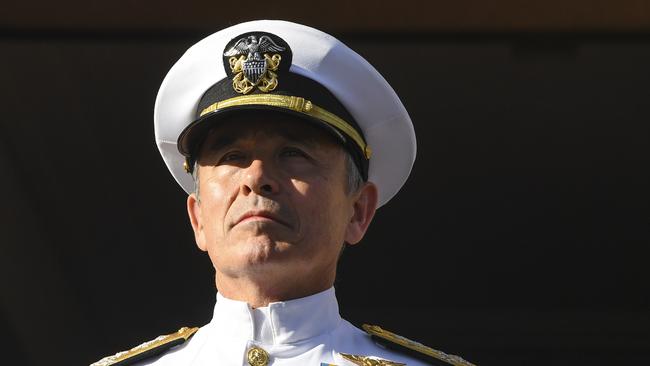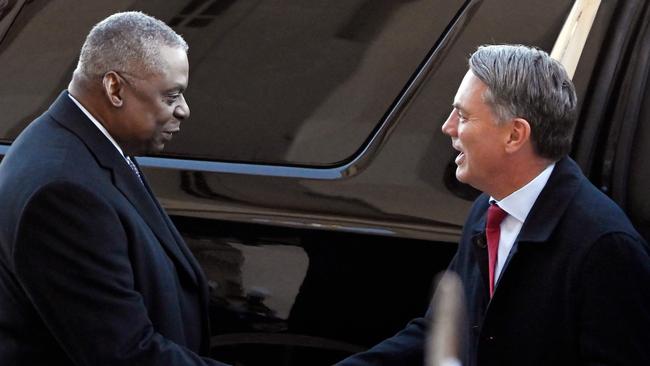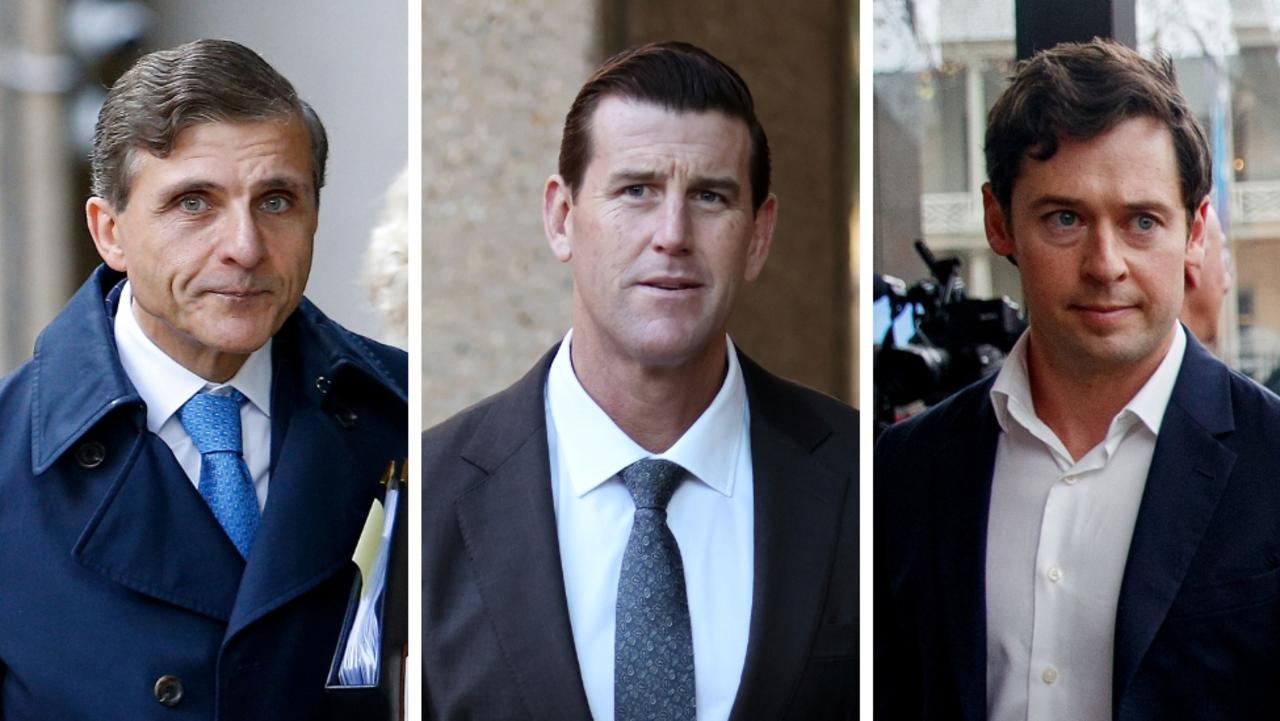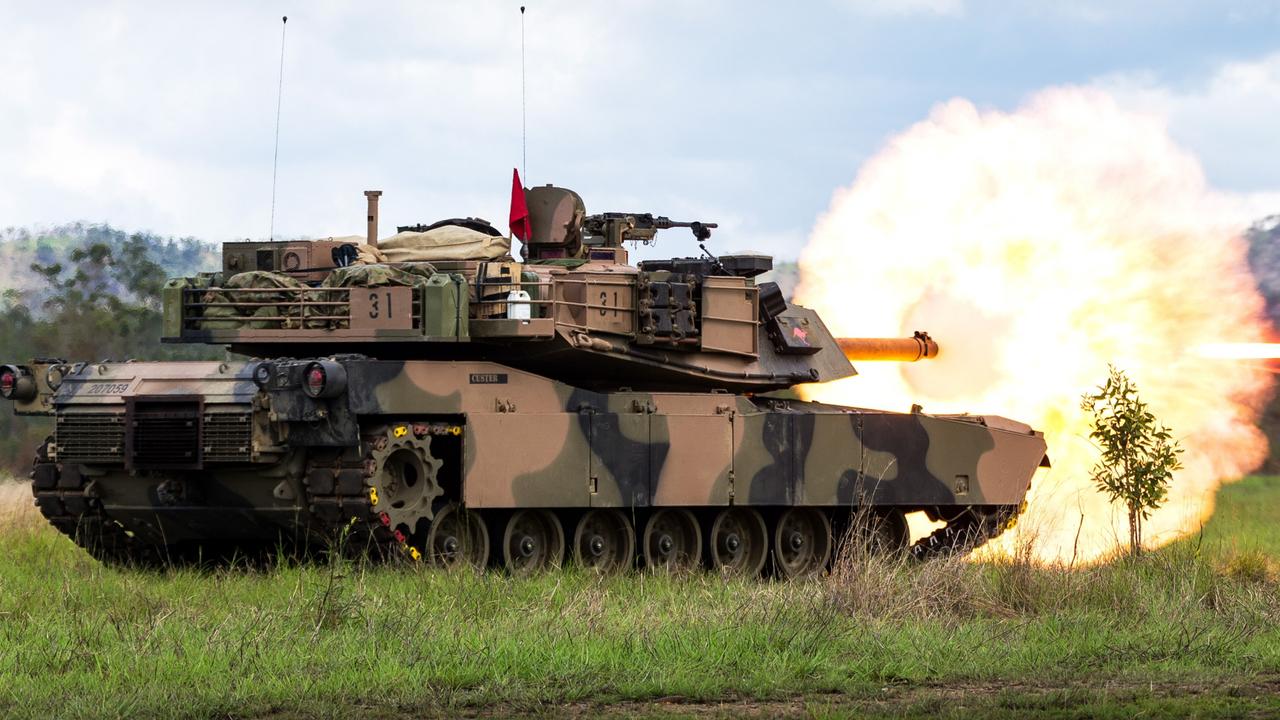AUKUS: Share military secrets with Australia’ urges former US navy chief
Former US commander of the Indo-Pacific urges Congress to share advanced technology with Australia’s ‘tremendous military’

Admiral Harry Harris, the former commander of the US military in the Indo-Pacific, has urged the new Republican controlled congress to slash regulations that impede the sharing of advanced military technology with Australia’s “tremendous military”, declaring the AUKUS security pact “supremely important”.
In one of two hearings on Capitol Hill on Tuesday (Wednesday AEDT) convened by the new Republican leadership to probe China’s growing military and economic threat, Admiral Harris said he “couldn’t emphasise enough how important” it was “to get through this export control issue with Australia”.
Admiral Harris, who was Donald Trump’s initial choice as Ambassador to Australia, also dismissed claims that it would be 30 years before Australia had its own nuclear-powered submarine up and running, owing to the complexity of the construction and personnel raining process.
“We put a man on the moon in eight years, and we developed a Covid vaccine in one year. We can do this, but we‘re going to have to put our shoulders to the task,” he told the House Armed Services Committee.
The government is expected to announce jointly with the US and UK governments next month, following an 18-month consultation period, a plan of how, when and at what cost the navy will obtain eight nuclear powered-submarines as promised under the AUKUS security pact.

Without changes to US rules known as International Trade and Arms Regulations, experts doubt the pact’s goals, including sharing advanced nuclear and missile technologies, can be realised.
“It‘s not going to happen overnight. It’s a big thing to do,” Mr Marles told reporters in Washington last week when asked about progress.
Mr Marles and Foreign Minister Penny Wong did didn’t extract promises from their US counterparts to reform the rules when they were in Washington for AUSMIN bilateral meetings in December.
At that time, US Ambassador to Australia Caroline Kennedy told The Australian the US was aware of the problem and was working toward changes, which would ultimately require congressional approval.
“For Australia, which has a tremendous military, for them to have the Long Reach of a nuclear submarine force would be dramatic. It would help us dramatically. It would change the balance of power in the Indian Ocean,” Admiral Harris also said.
His remarks came two days after the downing of a Chinese surveillance balloon off South Carolina by the US military, which has dramatically intensified focus on how the use can respond to China’s growing influence
They also came in the lead up to President Biden’s second State of the Union Address, to be delivered today at 9pm (1pm AEDT), expected to include more references to China than White House strategists would have liked.
In a sign Republicans intend to use their new-found congressional clout to focus on China, Republicans laid out a package of 17 proposed laws in a separate, House Financial Services committee hearing designed to thwart Chinese economic and financial power.
These included seeking to admit Taiwan to the International Monetary Fund, imposing sanctions on firms connected to the Chinese military, investigating Chinese links to the deadly fentanyl trade, and stopping US businesses from using China’s new digital currency.
“China is not an ally or a strategic partner. They are our competitor and pose the single greatest threat to America’s global standing,” said Republican congressman Henry McMaster, chairman of the House Financial Services Committee, in his opening remarks.
“The juxtaposition between the United States and China could not be more clear: they are centralised; we are decentralised; they are closed, we are open; they suppress free speech, we embrace it. For the US to compete with China, we cannot become more like the Chinese Communist Party”.




To join the conversation, please log in. Don't have an account? Register
Join the conversation, you are commenting as Logout